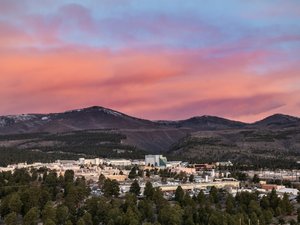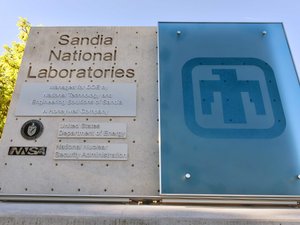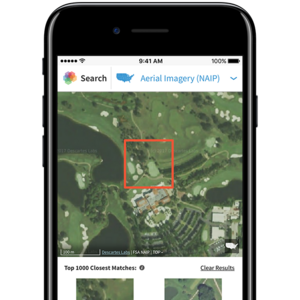
As New Mexico and a coalition of other Mountain West states vie for a chunk of federal development dollars, the state's flagship university and one of its prominent national laboratories have paired up to launch a research institute focused on quantum information science and technology.
Called the Quantum New Mexico Institute, or QNM-I, it's a collaborative research and development initiative the University of New Mexico and Sandia National Laboratories partnered to launch this month.
Each of those institutions houses its own respective quantum-focused groups. UNM has its Center for Quantum Information and Control (CQuIC), and Sandia operates a Quantum Information Program.
Leaders and staff from those respective groups will join forces through QNM-I, which aims to promote New Mexico's position as a national leader in the quantum computing and quantum information science spaces.
"Our scientists helped launch the second quantum revolution, through activities at UNM and the national laboratories, and I believe the QNM-I will build on this foundation, putting New Mexico in the national spotlight for its strong quantum science and engineering activities," Ivan Deutsch, Ph.D., a distinguished professor of physics at UNM, director of the University's CQuIC and QNM-I founding director, said in a statement.
That term, "second quantum revolution," refers to recent advances in quantum science that have allowed the processing and communication of information "in ways that are just inconceivable," Deutsch told New Mexico Inno.
Los Alamos National Laboratory, in particular, pioneered early quantum research in the state. Sandia Labs followed suit through its own Quantum Information Program, which has grown to become the largest quantum information science technology programs among U.S. Department of Energy laboratories, Deutsch said.
"New Mexico has a huge concentration of research and infrastructure in this area," Deutsch said. "The foundational basic research was critical. It was people wanting to understand the nature of the universe that helped us to unlock these secrets, to realize that if we can manipulate the microscopic world in this way, we can have a new paradigm for how we do computing and do communications and do cyber security."
Deutsch said QNM-I is "fundamentally focused" on research development and workforce development.
"We're looking for bigger and bolder research that combines the efforts of the university and the national laboratories to go after very big projects and very big goals, given the synergy between our institutions," he said.
The Institute, Deutsch added, has a broader goal, too — realizing New Mexico's potential as a "quantum information science and technology hub" for the U.S. The state has that potential, he said, because of its technological and research history and distinguished alumni from universities and labs in the state who Deutsch said are now helping lead major players in the quantum industry, like IBM and Google.
What could that look like? It starts with fostering "vibrant" basic research at New Mexico universities and national laboratories, which then spins out into "practical application," Deutsch said. That move from research to applications "has been growing at a rapid rate," he added.
Elevate Quantum, a consortium of over 75 organizations in New Mexico, Colorado and Wyoming, wants to help accelerate such efforts across the Mountain West.
The U.S. Economic Development Administration designated Elevate Quantum as one of 31 regional tech hubs aimed at boosting innovation across the country. Each designee is eligible to apply for a phase two funding opportunity, which could bring up to $75 million to the Mountain West hub for a series of quantum-focused projects. Between five to 10 of the original 31 designees will land those federal dollars through their application.
Some of Elevate Quantum's goals, per a five-page explainer on the coalition, include startup incubation by launching dozens of new quantum startups and workforce training through upskilling thousands of workers in the field of quantum information technology.
But Elevate Quantum is competing for those federal dollars with another quantum hub in the Midwest. Called The Bloch, the Midwest hub is based largely around quantum computing, networking and communications, spearheaded by research at institutions like the University of Chicago and the University of Illinois Urbana-Champaign.
While New Mexico has less quantum startup activity when compared to Colorado, which is home to established quantum companies like Quantiuum and Atom Computing, Deutsch said New Mexico's focus has been more in the realm of basic science and national security.
Landing federal dollars through the consortium, he said, could help facilitate more startup creation in New Mexico by spinning quantum information technology (QIT) research out of universities and national labs in the state, while also building a QIT workforce to help draw existing quantum companies to either relocate or set up offices in the Land of Enchantment.









